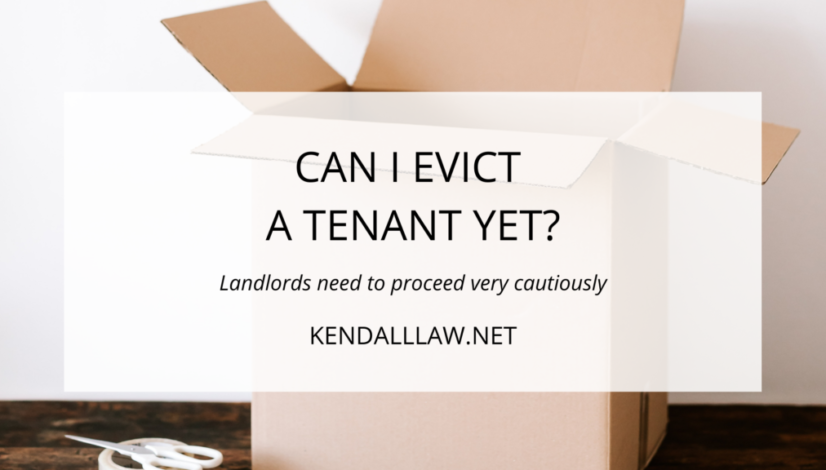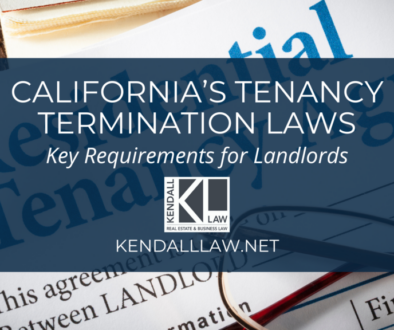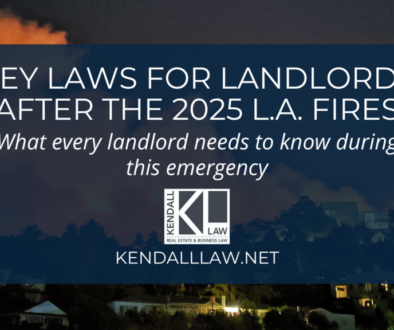Can I evict a tenant yet?
In his first day in office, Biden signed an extension of the Centers for Disease Control (CDC) moratorium through March 31, 2021. The effect of the federal order in California is largely dependent on the fate of the State’s own eviction moratorium (AB 3088).
AB 3088 is the legislation behind the COVID-19 Tenant Relief Act, which was signed into effect by Governor Newsom on August 31st, 2020 and is set to expire on January 31, 2021.
How AB 3088 works
Under AB 3008 affected tenants were required to submit a declaration of hardship to their landlords, in order to obtain relief. If there was evidence from the tenant’s application process that he/she earned more than 130% of the median income, the landlord could ask for documentation.
Under AB 3088, tenants who declared COVID-related hardships have until the end of January 2021 to pay at least 25% of back rent accrued since Sept. 1, 2020. Tenants who miss the payment deadline can face eviction beginning Feb. 1. However, it is a foregone conclusion that the legislation will extend the protections afforded under AB 3088. An extension or replacement of AB 3088 would push back that deadline and continue to prevent evictions for nonpayment when the pandemic is to blame.
State Legislation on Evictions & Moratorium Extensions
As the end of the relevant time period for AB 3088 is drawing near, and Landlords are expected to file 240,000 new eviction cases this year. This is double of what is filed in a typical year. The California Governor is adopting a two-pronged approach to this imminent event: 1) He is seeking to extend the Moratorium; and 2) He has requested more funding from the legislature, to support the courts, in the event that cases really do double.
Two bills seek to keep the State moratorium in place. Assembly Bill 15 by Assemblyman David Chiu, D-San Francisco, would extend eviction protections under AB 3088 until the end of this year. Senate Bill 3, by Sens. Anna Caballero, D-Salinas, and Steven Bradford, D-Gardena, would extend AB 3088 through March 2021. Legislators are seeking a replacement. This legislation would extend AB3088 through March 2021.
The State has added an additional level of aid, with the newly approved stimulus package signed last month: California is now expecting $2.6 billion in rental assistance for both tenants and landlords. This $2.6 billion is part of the $25 billion that was approved by Congress in December.
Los Angeles County Eviction Rules
On January 5, 2021, Los Angeles County entered a resolution that provided for the extension of the current moratoriums through February 28, 2021 and provided some clarity on several issues. For purposes of the extension the time between February 1, 2021 through February 28, 2021 is called the “Extension Protected Period”.
The extension applies to evictions based on non-payment of rent, no-fault evictions notice, rent increases, and unlawful detainer actions served and/or filed after March 4, 2020. The moratorium applies to all unincorporated areas of the County and to an incorporated area if the city has less restrictive moratoriums in place.
Under the County rules you cannot terminate tenancy for nuisance or for unauthorized occupants/pets whose presence is necessitated by or related to a COVID-19 emergency. A landlord can no longer terminate tenancy for denial of entry unless the entry is to remedy a condition that substantially endangers or impairs the health or safety of the residents.
While the ordinance states that it provides some clarity on no-fault prohibitions which are evictions not based on any alleged fault by the tenant, it is still clear as mud on whether or not a landlord can choose not to renew a lease term at the expiration of fixed term.
Eviction Prohibition: No-fault Just/Without Cause
No-fault evictions fall into two categories: (1) No-fault Just Cause and (2) No-Fault without Cause. Now for the most part, unless the property is exempt from the Tenant Protection of Act of 2019, you can never evict under the second category. No-fault Just Causes are: (1) Intent to occupy the property by the owner or spouse, domestic partner, children, grandchildren, parents or grandparents; (2) Withdrawal from the rental market; (3) Compliance with order from the government to vacate; (4) Intent to demolish or substantially remodel.
Non-payment and Repayment Protocols
The County’s non-payment for rent eviction prohibition extends to tenants that provided notice to the landlord within seven (7) days after the date that rent was due, that the tenant was unable to pay rent.
Another clarification is what happens if the tenant does not pay the rent back within the repayment period. Per the Los Angeles Moratorium, a residential tenant’s failure to pay back the unpaid rent under the repayment plan shall not be cause to evict the tenant.
It must be noted that a landlord is prohibited from applying a monthly rental payment to any rental debt other than to the prospective month’s rent, or such other month or rental debt that the residential tenant specifies, unless the residential tenant has agreed in writing to allow the payment to be otherwise applied. This shall be an affirmative defense for a residential tenant in any unlawful detainer action filed by a landlord.
If, at the local level, the Moratorium has a repayment protocol, the payments would commence on or before March 1st, 2021 and end by March 31st, 2022. Some repayment periods cannot be extended, even if set to begin prior to March.
Acts of Harassment
As always, it is unlawful to harass a tenant in hopes that they vacate. Acts of harassment include but are not limited to: (1) Interrupting, terminating, or failing to provide for all services required to be provided by the Landlord related to the use of the occupancy of the rental unit; (2) Failing to perform repairs and maintenance or failing to exercise due diligence in completing repairs and maintenance once started; (3) Abusing right to access the rental unit; (4) Abusing a tenant with words that are offensive and inherently likely to provoke an immediate violent reaction; (5) Influencing or attempting to influence a tenant to vacate through fraud, intimidation or coercion.
Clear as Mud
So the answer to “can I evict a tenant yet” is still very murky as deadlines, prohibitions, protocols and legislation brings in new rules. The short answer is that Federal and State legislation provides the baseline for the law. However, County and local ordinances often dictate exactly how the laws are implemented, and more importantly which parties are protected and how it will likely be viewed in Court.
It’s critical that you have a correct understanding of your rights, obligations and the law as it applies to your particular situation. For landlords, it’s very important that you handle tenants, evictions and payments carefully.
Please don’t go it alone! Contact us at (310) 619-4941 so we can help you take the right steps and hopefully avoid costly litigation. Kendall Law is here to help.
Author: Eileen Kendall





